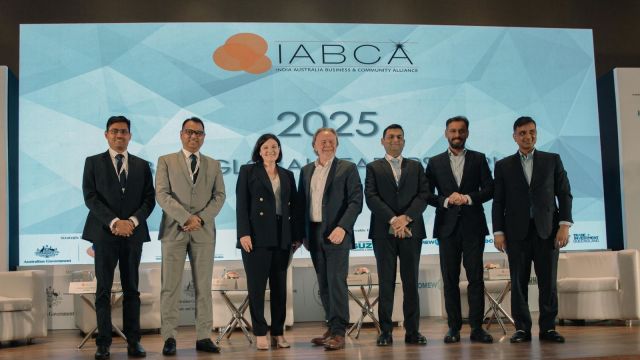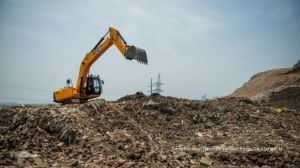Talks for second phase of India-Australia FTA at ‘advanced business end’, says High Commissioner Philip Green
Speaking in Mumbai, Australia’s High Commissioner to India Philip Green described the two countries’ ties as a “natural alliance” built on complementarity rather than competition.
 The High Commissioner described Australia and India as a “natural alliance” built on complementarity rather than competition. (Photo Credit: X/@AusHCIndia)
The High Commissioner described Australia and India as a “natural alliance” built on complementarity rather than competition. (Photo Credit: X/@AusHCIndia)Australia’s High Commissioner to India Philip Green said negotiations for the second phase of the Free Trade Agreement (FTA) between the two countries are advancing steadily and are now at an “advanced business end” stage. He was speaking in Mumbai at the India-Australia Business and Community Alliance Awards Gala which concluded the IABCA India Immersion Week attended by over 400 delegates from both nations.
Green said the first phase of the agreement has already demonstrated strong results. “India’s exports to the world grew 40 per cent in the past five years but its exports to Australia grew 200 per cent in the same period. That shows how effective the agreement is and why we are so committed to the next phase,” he said.
The High Commissioner described Australia and India as a “natural alliance” built on complementarity rather than competition. “Australia is there to support the energy India needs for manufacturing growth, minerals and metals for the green transition, and skills and training for its young workforce,” he said. Green added that both countries have invested heavily in the partnership, including through new consulates and bilateral business exchanges.
On migration and safety issues, he emphasised that Australia remains one of the safest destinations in the world for people of Indian origin, with more than a million having made it their home. “Occasional incidents can happen anywhere but Australia deals with them effectively. The vast majority of Australians are hugely supportive of our multicultural heritage and there is no place for discrimination,” he said.
Clean energy, tourism among ‘superhighways’ in economic roadmap
Asked about areas with the greatest potential for bilateral growth, Green pointed to clean energy, agriculture, education and tourism. “These are the superhighways identified in the Australia-India economic roadmap and we are backing them with strong policy support and effort to expand investment and trade,” he said.
On speculation over a potential visit by Australian Prime Minister Anthony Albanese to India, Green declined to confirm any details. “The Prime Minister always looks forward to his visits to India and to engaging with Prime Minister Modi. Questions of visits are for them to announce and for us to applaud,” he said.
Reflecting on the week-long IABCA programme, Green said the awards highlighted leadership in business and community ties while the wider discussions in Delhi and Mumbai underlined the growing depth of the bilateral relationship. “This is a great night for the Australia-India corridor,” Green said.
The IABCA India Immersion Week, held from September 9 to 12 across New Delhi and Mumbai, brought together policymakers, business leaders, cultural figures and educators. It featured sessions on education and skills, cultural diplomacy and sustainable trade before culminating in the Global Leaders’ Forum and Awards Gala at the Jio World Centre in Mumbai.
Maharashtra IT Minister Ashish Shelar attended the Global Leaders’ Forum in Mumbai, along with senior representatives from industries including renewable energy, infrastructure, water management and finance, highlighting opportunities for deeper trade and innovation partnerships.








